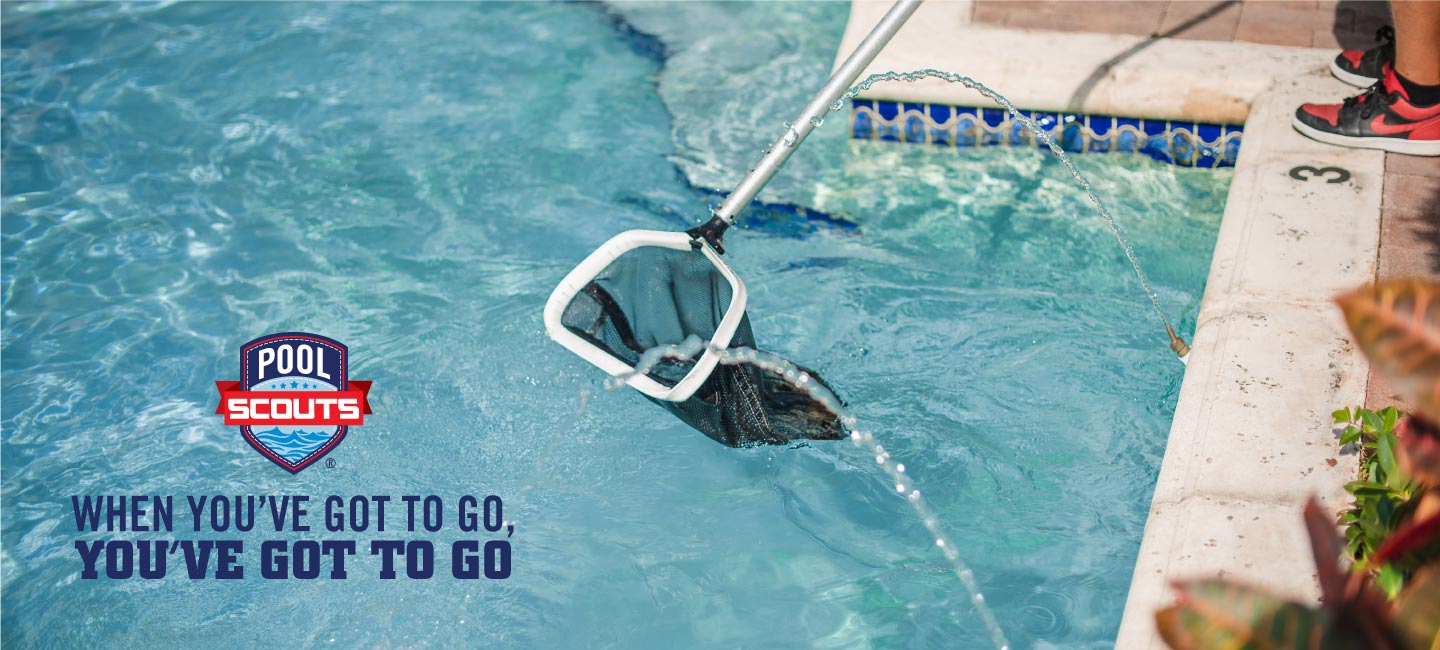
When you’ve got to go, you’ve got to go! Tips on how to clean your pool after an accident
As the old adage goes, when you’ve got to go, you’ve got to go! And for those of us who are old enough to remember Caddyshack, we know the impact that “doody” can have on your pool and pool goers – cue the screaming and yelling children (and moms) at the country club pool.
But even when talking about residential pools, pool owners need to be aware of how to properly sanitize their own pools. As any parent who has taken their toddler swimming will tell you, you are holding your breath the entire time, hoping they don’t get the urge to go! But as we know, it can happen.
Pool Is Now Closed
So, what do you do? First, don’t panic, but do get everyone out of the pool! The pool is now closed. Follow the steps below to get your pool sanitized and swim-ready as quickly as possible:
- Close the pool to swimmers until the disinfection process is completed.
- Remove as much fecal matter as possible. Scoop with net. By all means, DO NOT VACUUM.
- Clean and disinfect the item used to remove the fecal matter by leaving it in the pool while you sanitize the water.
- Maintain proper pH of 7.5 or less.
- Solid Poop: A 15,000 gallon pool will require roughly 1/2 gallon liquid chlorine or 9oz Granular Shock (Calcium Hypochlorite). Must maintain 3.0 ppm free chlorine for minimum 19 minutes.
- Diarrhea Exposure: A 15,000 gallon pool will require roughly 3 gallons liquid chlorine or 4 lbs. Granular Shock (Calcium Hypochlorite). Must maintain 20.0 ppm free chlorine for minimum 28 hours. Test water frequently and add more of above if needed during this period.
- Confirm filtration system is operating during the process. Test and maintain proper pH and Chlorine Levels.
- Re-open the pool for swimmers once Chlorine and pH are back to normal operating levels. Typically 1-2 hours.
Things to Keep On Hand
Here are a few items to have on hand in case you’re ever faced with a stinky situation:
- Up to date test kit
- Shock (Calcium Hypochlorite) 65% or higher from reputable pool store
- Pool net to remove fecal matter
By all means, a fecal pool accident is not the most pleasant part of being a pool owner, but is it a reality! Not to worry. If you have any questions or find yourself dealing with the “doody” and not sure what to do, be sure to call your local Pool Scouts for help! We’re not afraid of a little dirty work. Check out more tips from a Pool Scouts rep here.
